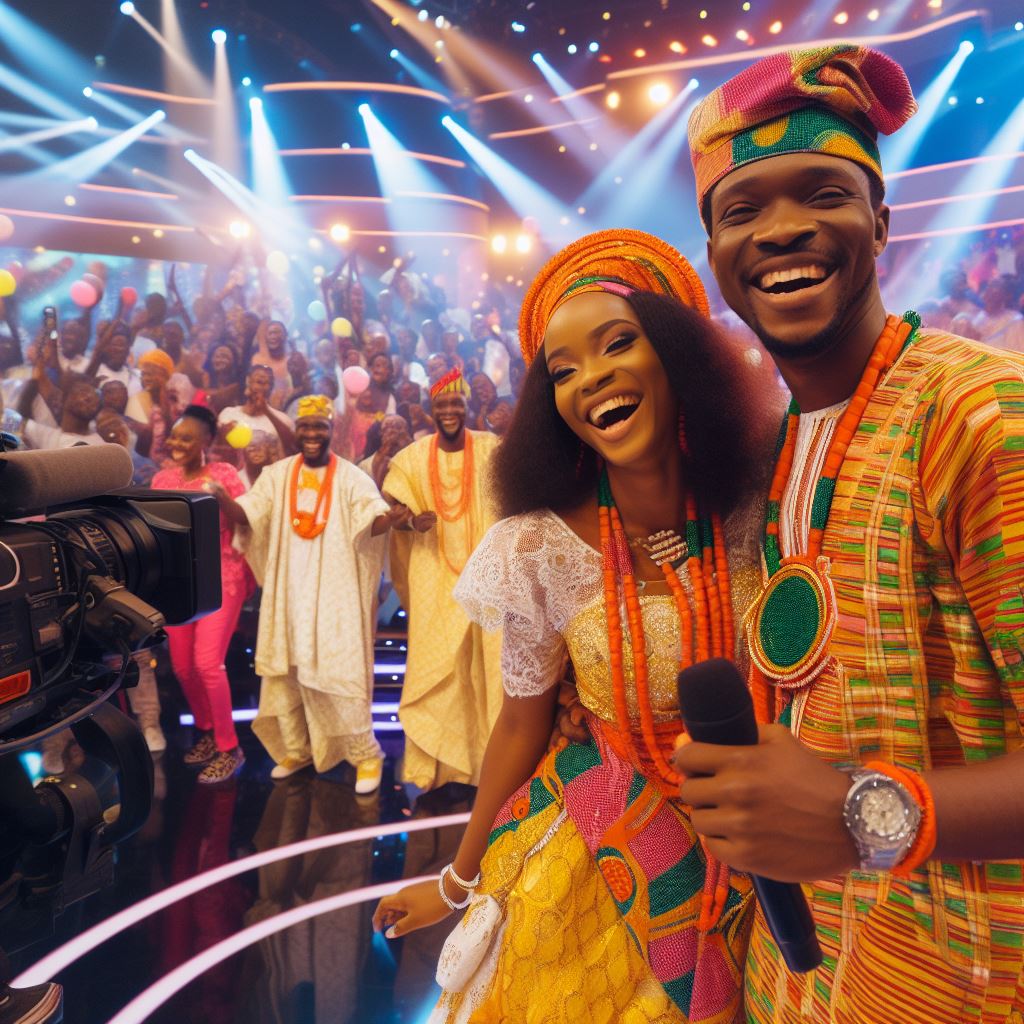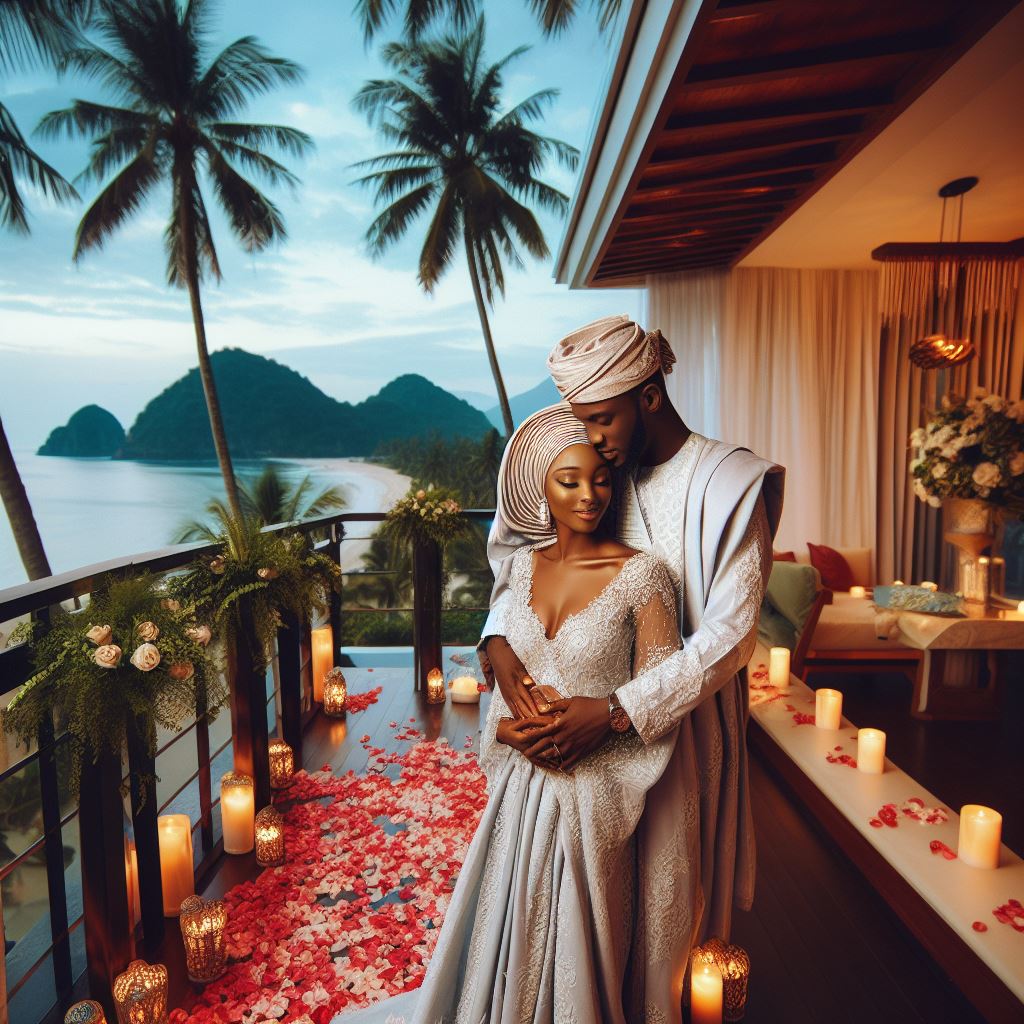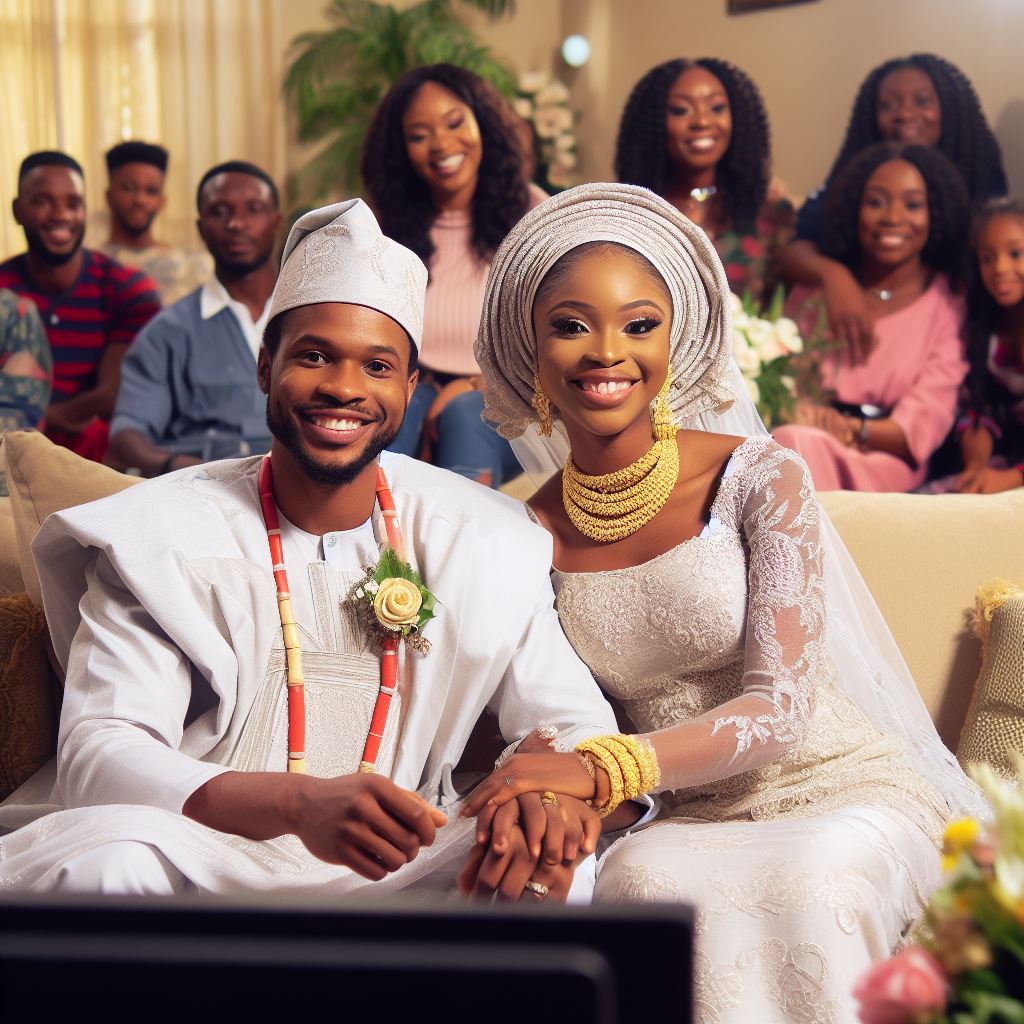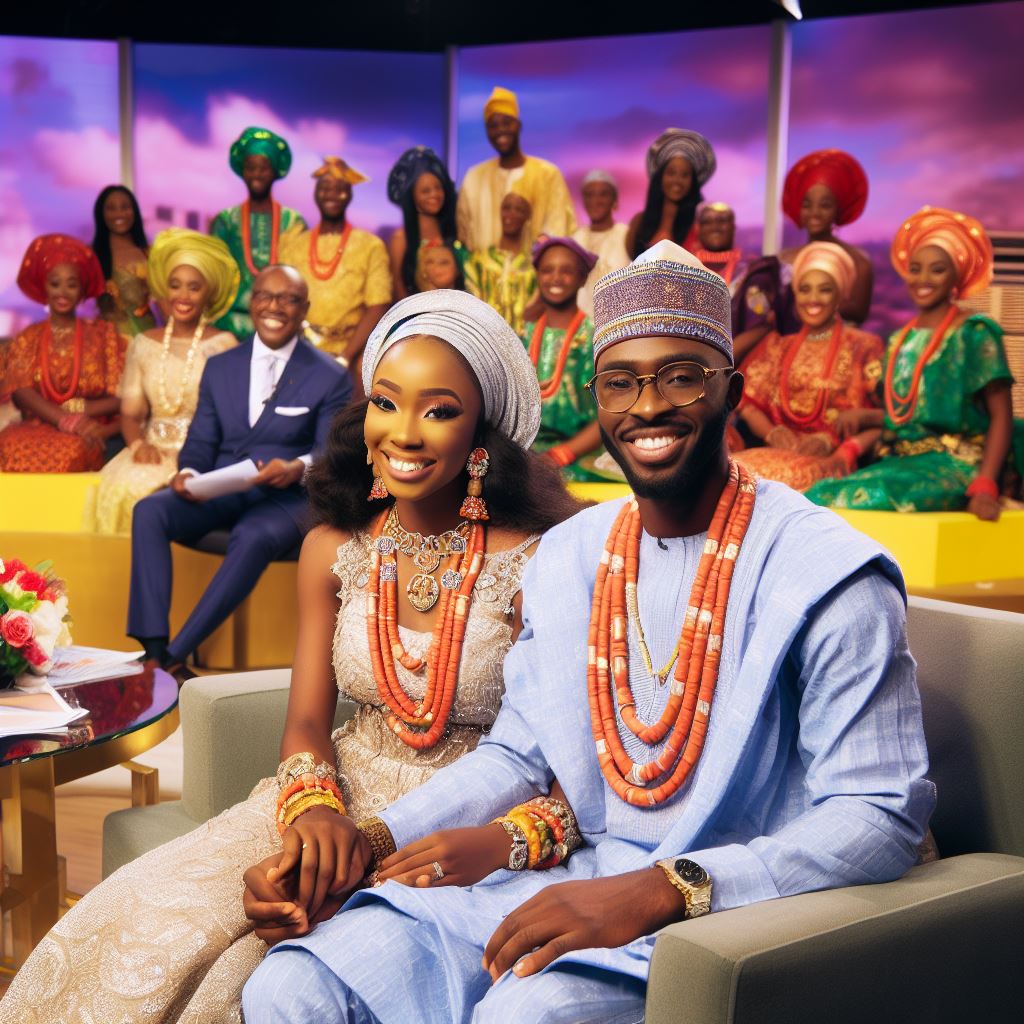Introduction
Traditional arranged marriages in Nigeria have deep cultural roots that involve parents or family members selecting potential spouses for their children based on social, economic, and cultural compatibility.
This traditional practice emphasizes the importance of family and community in the decision-making process.
On the other hand, the television show “Married at First Sight” challenges traditional notions of marriage by matching strangers and encouraging them to tie the knot without any prior knowledge or relationship.
The show aims to explore whether love can develop after marriage rather than before.
Comparing both practices, traditional arranged marriages prioritize the preservation of family honor and status, while “Married at First Sight” focuses on finding love through experimentation and unconventional approaches.
However, these practices have different implications for marriage in Nigeria.
Traditional arranged marriages ensure social stability, maintain cultural values, and strengthen family bonds.
On the contrary, “Married at First Sight” explores the possibility of love without external influences and societal pressures.
Basically, while traditional arranged marriages and “Married at First Sight” differ in their methodologies, both approaches challenge the traditional views of marriage.
These practices highlight the significance of cultural values, social expectations, and individual preferences when it comes to the institution of marriage in Nigeria.
Traditional Arranged Marriages
Definition and characteristics of traditional arranged marriages in Nigeria
Traditional arranged marriages in Nigeria are marriages where the families of the individuals play a major role in finding a suitable spouse.
These marriages are based on cultural and family values, with parents being heavily involved in the matchmaking process.
The role of family and community in the process
In traditional arranged marriages, the family and community play a vital role in the process.
They are responsible for finding potential matches, conducting background checks, and ensuring compatibility based on social standing, tribe, religion, and economic factors.
Factors considered for potential matches
Several factors are taken into consideration when selecting a potential match for an individual in traditional arranged marriages.
These include the family’s reputation, educational background, financial status, and the compatibility of the couple’s personalities and interests.
The importance of cultural and family values in the matchmaking process
Cultural and family values play a significant role in the matchmaking process of traditional arranged marriages.
The goal is to find a spouse who aligns with these values to ensure a harmonious and successful marriage.
Benefits and challenges of traditional arranged marriages in Nigeria
Traditional arranged marriages in Nigeria have their benefits and challenges.
Some benefits include the involvement of family and community, which helps support the couple and ensures compatibility.
Additionally, these marriages often contribute to social cohesion and preservation of cultural heritage.
However, there are also challenges associated with traditional arranged marriages.
Limited personal freedom and choice can be seen as a disadvantage, as individuals may not have the freedom to marry someone based solely on love.
There is also the risk of forced marriages and the potential for unequal power dynamics within the relationship.
Generally, traditional arranged marriages in Nigeria are deeply rooted in cultural and family values.
While they have their benefits, such as strong community support and preservation of traditions, they also come with challenges.
It is important to strike a balance between cultural traditions and individual freedom when considering the practice of arranged marriages in modern society.
Read: Couples of the Bible: Stories and Marriage Verses
“Married at First Sight”
Introduction to the television show and its premise
- “Married at First Sight” is a unique reality TV show that explores the concept of arranged marriages.
- The premise of the show involves experts matching couples who meet and get married on their first meeting.
- The couples then go on a honeymoon and live together for several weeks to determine if they want to stay married or get divorced.
- This unconventional approach to finding love has garnered both praise and criticism from audiences worldwide.
The application and selection process for participants
- To be on “Married at First Sight,” individuals have to go through a rigorous application process.
- Applicants fill out extensive questionnaires and go through interviews and background checks.
- The show’s experts then carefully analyze the information provided to select compatible couples.
- The selection process aims to ensure that the matched couples have the potential for a successful relationship.
The role of experts in matching couples
- The show’s experts, including relationship psychologists, sociologists, and sexologists, play a crucial role in matchmaking.
- They use their expertise to analyze the applicants’ personalities, values, and compatibility factors.
- The experts meet with the couples individually to gain a deeper understanding of their preferences and relationship goals.
- Based on this information, the experts make educated decisions about who would make the best match for each other.
Comparison of the concept of love and compatibility in “Married at First Sight” to traditional arranged marriages
- While traditional arranged marriages are often based on cultural and family considerations, “Married at First Sight” focuses on compatibility.
- The show emphasizes the importance of shared values, goals, and personalities in building a successful marriage.
- Traditional arranged marriages may rely more on external factors, such as social status or financial considerations.
- “Married at First Sight” aims to create a foundation for love and compatibility based on psychological analysis and personal preferences.
Benefits and challenges of participating in “Married at First Sight”
- Participating in “Married at First Sight” provides individuals with a unique opportunity to find love on a public platform.
- The couples receive guidance and support from the show’s experts throughout their journey.
- However, the public scrutiny and pressure can be challenging for the couples.
- The success rate of marriages formed on the show has been mixed, highlighting the difficulties in finding long-lasting love in such circumstances.
Essentially, “Married at First Sight” offers a modern take on arranged marriages, focusing on compatibility and personal preferences.
The show’s experts play a crucial role in pairing couples, and participants experience both benefits and challenges throughout their journey.
While it may not be a conventional approach to finding love, “Married at First Sight” sparks debates and invites viewers to question the concept of love and marriage.
Read: Heartfelt Marriage Prayers and Their Bible Origins
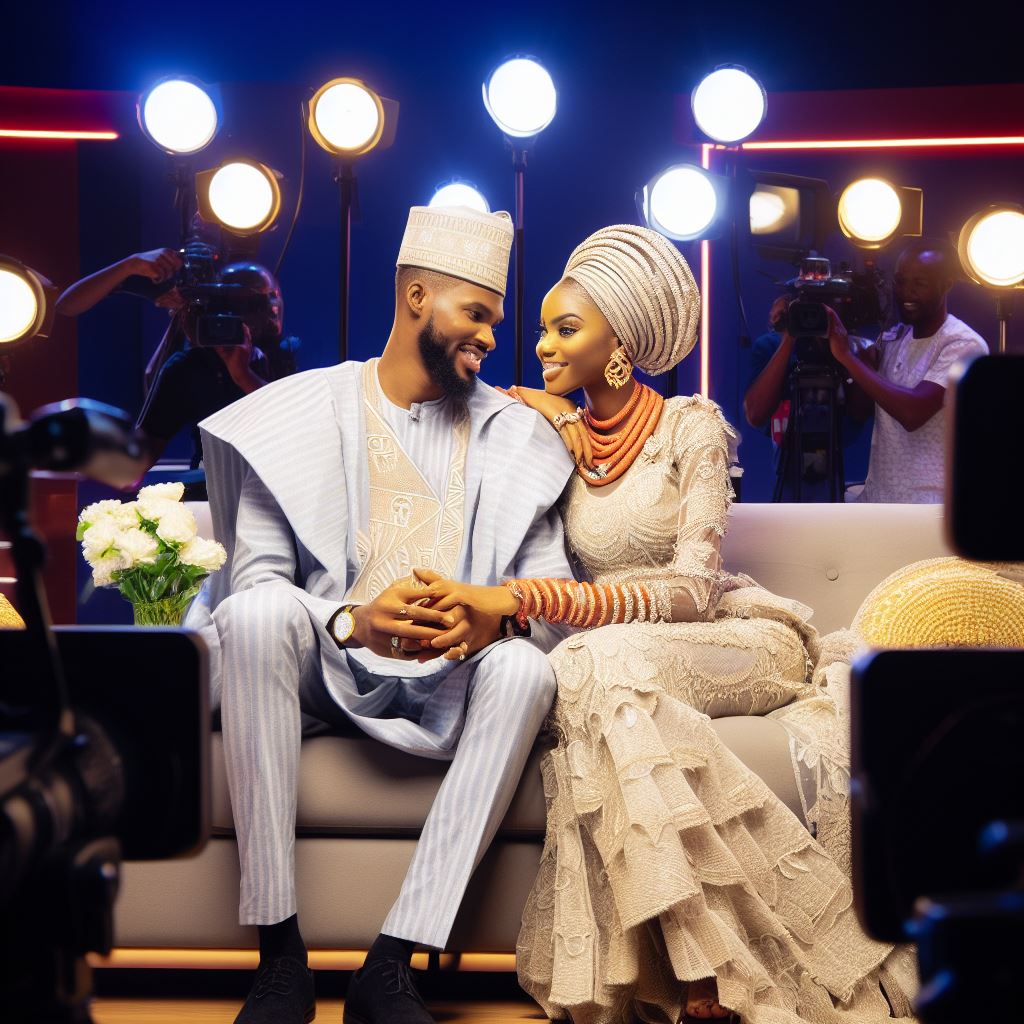
Comparing Traditional Arranged Marriages and “Married at First Sight”
Purpose of Marriage
Traditional Arranged Marriages
- Unites families, fosters social harmony.
- Priority on compatibility, shared values.
“Married at First Sight”
- Experimentation, exploration of love.
- Focus on personal compatibility and chemistry.
Role of Choice and Consent
Traditional Arranged Marriages
- Less emphasis on individual choice.
- Consent often influenced by family.
“Married at First Sight”
- Solely voluntary participation.
- Couples consent to unknown partners.
Influence of Family and Community
Traditional Arranged Marriages
- Strong familial involvement.
- Community approval is essential.
“Married at First Sight”
- Minimal family interference.
- Community approval not a factor.
Beliefs about Love, Compatibility, and Commitment
Traditional Arranged Marriages
- Love may develop post-marriage.
- Commitment to family and tradition.
“Married at First Sight”
- Love at first sight is encouraged.
- Emphasis on personal happiness.
Evaluation of Success Rates and Long-Term Outcomes
Traditional Arranged Marriages
- Often stable, enduring unions.
- Divorce rates can be lower.
“Married at First Sight”
- Mixed success, higher divorce rates.
- Some couples find lasting love.
In general, traditional arranged marriages prioritize tradition, stability, and family unity, while “Married at First Sight” focuses on personal choice, love, and experimentation.
The success of both practices varies, but each offers a unique perspective on the institution of marriage.
Read: From Adam and Eve: Lessons on Marriage in the Bible
Implications for Marriage in Nigeria
Cultural and societal impacts of traditional arranged marriages
- Traditional arranged marriages in Nigeria reflect cultural values and reinforce social hierarchies.
- These marriages prioritize familial and community considerations over individual desires and personal compatibility.
- They often involve elaborate negotiation processes and the involvement of extended family members.
- In such marriages, the emphasis is on maintaining family honor and strengthening social alliances.
- However, the practice can limit individual autonomy, especially for women, and perpetuate gender inequality.
Changes in perspectives towards marriage in Nigeria due to exposure to “Married at First Sight”
- The popular TV show “Married at First Sight” has introduced Nigerians to an alternative approach to marriage.
- It challenges the traditional notion of arranged marriages by focusing on compatibility and finding love.
- Exposure to the show has expanded people’s ideas about what is possible in the realm of marriage.
- It has sparked conversations and debates about the importance of choice, love, and personal happiness in matrimony.
- The show has also influenced some individuals to question the limited role of family and community in their marital decisions.
Balancing tradition with modern concepts of love, compatibility, and choice in Nigerian marriages
- As Nigerian society evolves, there is a growing need to integrate traditional values with contemporary ideals.
- Many Nigerian couples now strive for a balance between their cultural roots and personal desires.
- This involves combining arranged marriage practices with the search for emotional connection and shared values.
- Some families are more open to allowing their children to have a say in choosing their partners.
- It is crucial to develop a framework that allows individuals to navigate between tradition and modernity.
The role of communication, trust, and personal growth in successful marriages, regardless of the practice
- Regardless of whether a marriage is arranged or based on personal choice, communication is key.
- It is essential for couples to openly express their needs, emotions, and expectations.
- Trust is crucial in building strong relationships and maintaining healthy marriages.
- Both partners should be willing to grow individually and together, supporting each other’s personal development.
- Ultimately, successful marriages rely on the willingness of both individuals to invest in nurturing their bond.
Read: Grace, Love, and Unity: Biblical Keys for Marriage
Conclusion
When comparing traditional arranged marriages and “Married at First Sight,” it is evident that there are significant differences in terms of the process and expectations of marriage.
Traditional arranged marriages involve the involvement of families, cultural traditions, and a focus on compatibility and long-term commitment.
On the other hand, “Married at First Sight” relies on experts’ assessments and the individuals’ willingness to take the risk of marrying a complete stranger.
The implications for marriage in Nigeria are noteworthy.
Traditional arranged marriages maintain strong societal and familial ties, preserving cultural heritage and values.
Meanwhile, “Married at First Sight” challenges conventional norms, emphasizing individual agency and the pursuit of love.
While both practices have their merits and drawbacks, it is essential to recognize the continued relevance and diversity of marriage practices in Nigeria.
As society evolves, it is crucial to respect different perspectives and choices regarding marriage.
In a nutshell, the comparison between traditional arranged marriages and “Married at First Sight” highlights the various approaches to marriage in Nigeria.
These practices reflect cultural values but also showcase the evolving dynamics and aspirations of individuals in modern society.

